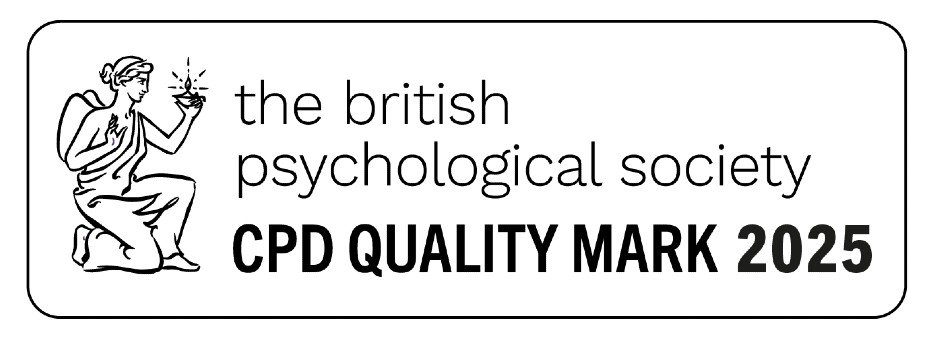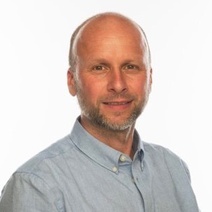
Course Brief
CLICK HERE TO BOOK
Module of Certificate in Cognitive Behavioural Therapy for Children and Adolescents
Book all 14 Modules (16 days) and save over £800
(CBT Introductory Course to be booked separately)
CLICK HERE TO BOOK
Learning outcomes for the day will be:
- Revisiting the CBT model
- Cognitive therapy and how this links to Piaget’s stages of cognitive development
- How to recognise common neurodevelopmental problems like Autistic Spectrum Disorder (ASD) and ADHD and when to refer for further assessment
- Adapting CBT for children with ASD, ADHD and LDs
- Using Goals and Outcome Measures to improve therapy outcomes
- An introduction to CBT in the context of family patterns – how the thoughts, feelings and behaviours of the child and parent interact to maintain problems
- The relationship between the age and development of the child and the degree to which parents need to be involved as co-therapists
Book all 14 Modules (16 days) and save over £800
(CBT Introductory Course to be booked separately)
This Course is now available as a full recording with an online test via SDS Online Video Training (OVT)
Title: Applying CBT to Children and Adolescents
Modality: CBT
CPD Hours Attached: 7 CPD Hours
CLICK HERE TO BOOK
Book all 14 Modules (16 days) and save over £800
(CBT Introductory Course to be booked separately)
SDS Accreditation Levels for CBT Training
SDS Accreditation, Level 1 (CBT Practitioner, Foundation Stage) is the level of accreditation you obtain by attending the CBT: Introductory Course, completing the relevant Evidence Reading Module and passing the online test.
This level of accreditation gives you a BPS Approved Certificate, access to the CBT Introductory course resources online, and enables you to state in your CV that you have Level 1 (Foundation) Accreditation as a CBT Practitioner, and use PCBT (Foundation) qualification in your title.
Your accreditation currently lasts for 3 years, after which you cannot make the above statements and access course resources.
This level of accreditation is renewable by sitting an online refresher course or attending a live course/webcast on the original topic. Should you renew your accreditation within these 3 years, your access to these refresher courses is discounted by 50%.* Should you let your accreditation lapse, you pay the full price for the refresher training.
SDS Accreditation, Level 2 (Master Practitioner in CBT, Assessed Academic Competence) means you have completed all the hours required by SDS Master Practitioner Diploma in CBT and also passed all the online exams.
You obtain this level of accreditation by completing SDS’ modular Master Practitioner Diploma in CBT, by completing the relevant Evidence Reading and Case Formulation modules, and by passing all the online tests associated with the Diploma.
This level of accreditation gives you a BPS Approved Master Practitioner Diploma in CBT, as well as access to the course materials and other resources. It also enables you to state in your CV that you have Level 2 (Assessed Academic Competence) Accreditation as a Master Practitioner in CBT and use MPCBT (AAC) qualification in your title.
Your accreditation currently lasts for 3 years, after which you cannot make the above statements and access course resources.
This level of accreditation is renewable by sitting an online refresher course or attending a live course/webcast listed as a suitable refresher course. Should you renew your accreditation within these 3 years, your access to these refresher courses is discounted by 50%.* Should you let your accreditation lapse, you pay the full price for the refresher training.
SDS Accreditation, Level 3 (Master Practitioner in CBT, Clinical Proficiency) is as Level 2, with the addition of:
- A work-based assignment set by SDS of between 4,000 and 5,000 words. The assignment is designed to help you demonstrate your ability to apply the learning you have proved at Level 2 to a clinical situation in a considered way. You receive feedback on the case you submit, regardless of whether or not it reaches the required standard.
- a written statement from your Clinical Supervisor confirming the regularity and duration of your supervision with them and your Competence as a clinician practicing CBT. Your Clinical Supervisor should meet our qualification criteria. The purpose of this statement is to confirm your clinical Competence as a CBT practitioner and to ensure that your practice is regularly supervised and meets required standards.
This level of accreditation gives you a BPS Approved Master Practitioner Diploma in CBT, as well as access to the course materials and other resources. It also enables you to state in your CV that you have Level 3 (Clinical Proficiency) Accreditation as a Master Practitioner in CBT and use MPCBT(CP) qualification in your title.
You will also be given an option to be listed in the SDS Register of CBT Practitioners – our Network of Qualified CBT Practitioners.
Your accreditation currently lasts for 3 years, after which you cannot make the above statements and access course resources.
This level of accreditation is renewable by sitting an online refresher course or attending a live course/webcast listed as a suitable refresher course and by submitting a new supervision statement. Should you renew your accreditation within these 3 years, your access to these refresher courses and the written assignment is discounted by 50%.* Should you let your accreditation lapse, you pay the full price for the refresher training.


